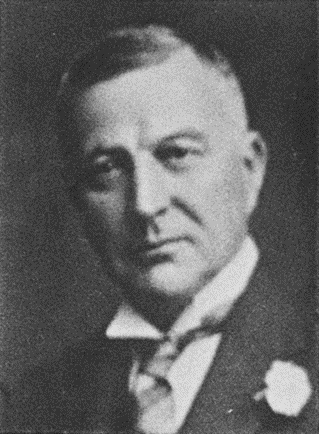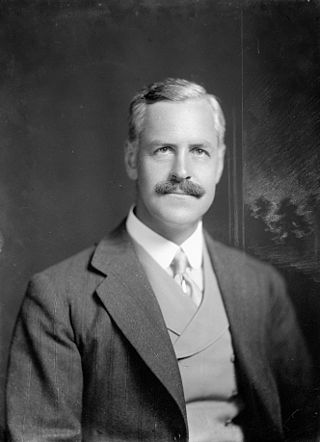
The 1935 New Zealand general election was a nationwide vote to determine the shape of the New Zealand Parliament's 25th term. It resulted in the Labour Party's first electoral victory, with Michael Joseph Savage becoming the first Labour Prime Minister after defeating the governing coalition, consisting of the United Party and the Reform Party, in a landslide.

The 1931 New Zealand general election was a nationwide vote to determine the shape of the New Zealand Parliament's 24th term. It resulted in the newly formed coalition between the United Party and the Reform Party remaining in office as the United–Reform Coalition Government, although the opposition Labour Party made some minor gains despite tallying more votes than any other single party.

The 1938 New Zealand general election was a nationwide vote to determine the shape of the New Zealand Parliament's 26th term. It resulted in the governing Labour Party being re-elected in a landslide, winning nearly 56% of the vote despite not gaining any more seats. Having replaced the United-Reform coalition, the newly founded National Party also gained a certain amount of ground.

The 25th New Zealand Parliament was a term of the New Zealand Parliament. It opened on 25 March 1936, following the 1935 election. It was dissolved on 16 September 1938 in preparation for the 1938 election.

The 1928 New Zealand general election was held on 13 and 14 November in the Māori and European electorates, respectively, to elect 80 MPs to the 23rd session of the New Zealand Parliament.

Mary Manson Dreaver was a New Zealand politician of the Labour Party. She was the third woman to sit in the New Zealand House of Representatives, one of the first two women to sit in the New Zealand Legislative Council, and the only woman to sit in both chambers.
Western Maori was one of New Zealand's four original parliamentary Māori electorates established in 1868, along with Northern Maori, Eastern Maori and Southern Maori. In 1996, with the introduction of MMP, the Maori electorates were updated, and Western Maori was replaced with the Te Tai Hauāuru and Te Puku O Te Whenua electorates.

Remuera is a former New Zealand parliamentary electorate, in the city of Auckland. It existed from 1938, when it replaced the Parnell electorate, until 1996. It was consistently held by members of the National Party.

Thomas Bloodworth was a New Zealand politician. He was a Member of the Legislative Council and its last Chairman of Committees.
Parnell was a parliamentary electorate in the city of Auckland, New Zealand, from 1861 to 1954, with one break of eight years.
Waipawa was a parliamentary electorate in the Hawke's Bay Region of New Zealand, from 1881 to 1946.

Harry Reginald Jenkins was a New Zealand Member of Parliament for Parnell in Auckland, New Zealand, representing the United Party.

William Phillips Endean was a New Zealand politician, first of the Reform Party then from 1935 the National Party. He failed to be selected for the 1943 election and was the first sitting National MP with that fate, but was called to the Legislative Council in 1950 as part of the Suicide squad. He was a lawyer by trade.

The 23rd New Zealand Parliament was a term of the New Zealand Parliament. It was elected at the 1928 general election in November of that year.

John Endean made his money in gold mining in three countries. He settled in Auckland, New Zealand, where he was a hotel proprietor. The Endeans Building built for him on Auckland's Queen Street is a landmark that is registered with Heritage New Zealand; his private residence in Symonds Street is also a registered heritage building.

The 1930 Invercargill by-election was a by-election during the 23rd New Zealand Parliament in the Southland electorate of Invercargill. The by-election occurred following the death of Sir Joseph Ward on 8 July 1930. The by-election, which was held on 13 August, was won by the late Prime Minister's second son, Vincent Ward against James Hargest.
The 1915 Bay of Islands by-election was a by-election held on 8 June 1915 during the 19th New Zealand Parliament in the Northland electorate of Bay of Islands. The by-election came about because Vernon Reed's win in the 1914 general election was declared void by an electoral court. The seat was won by William Stewart of the Reform Party. Reed, who was also of the Reform Party, was barred by the court from standing for election for 12 months.

The 1917 Bay of Islands by-election was a by-election held on 19 March 1917 during the 19th New Zealand Parliament in the Northland electorate of Bay of Islands. The by-election came about because Vernon Reed's win in the 1914 general election had been declared void by an electoral court, and Reed barred from standing for a year. The seat was won by William Stewart, Reed's Reform Party colleague, in the resulting 1915 by-election. When Reed became eligible again, Stewart resigned and Reed won the 1917 by-election unopposed.
The Waitemata by-election was held on 19 July 1941 was caused by the death of Jack Lyon during the term of the 26th New Zealand Parliament. Mary Dreaver of the Labour Party won the by-election; she was the third woman elected to the House of Representatives.

The 1936 Manukau by-election was a by-election during the 25th New Zealand Parliament in the Manukau electorate. It was held on Wednesday 30 September 1936. This by-election came about because of the resignation of Bill Jordan upon his appointment to the position of High Commissioner to the UK during the term of the 25th New Zealand Parliament. The by-election in the Manukau electorate was contested by Arthur Osborne for Labour and Frederick Doidge for National, with Osborne winning the election.















